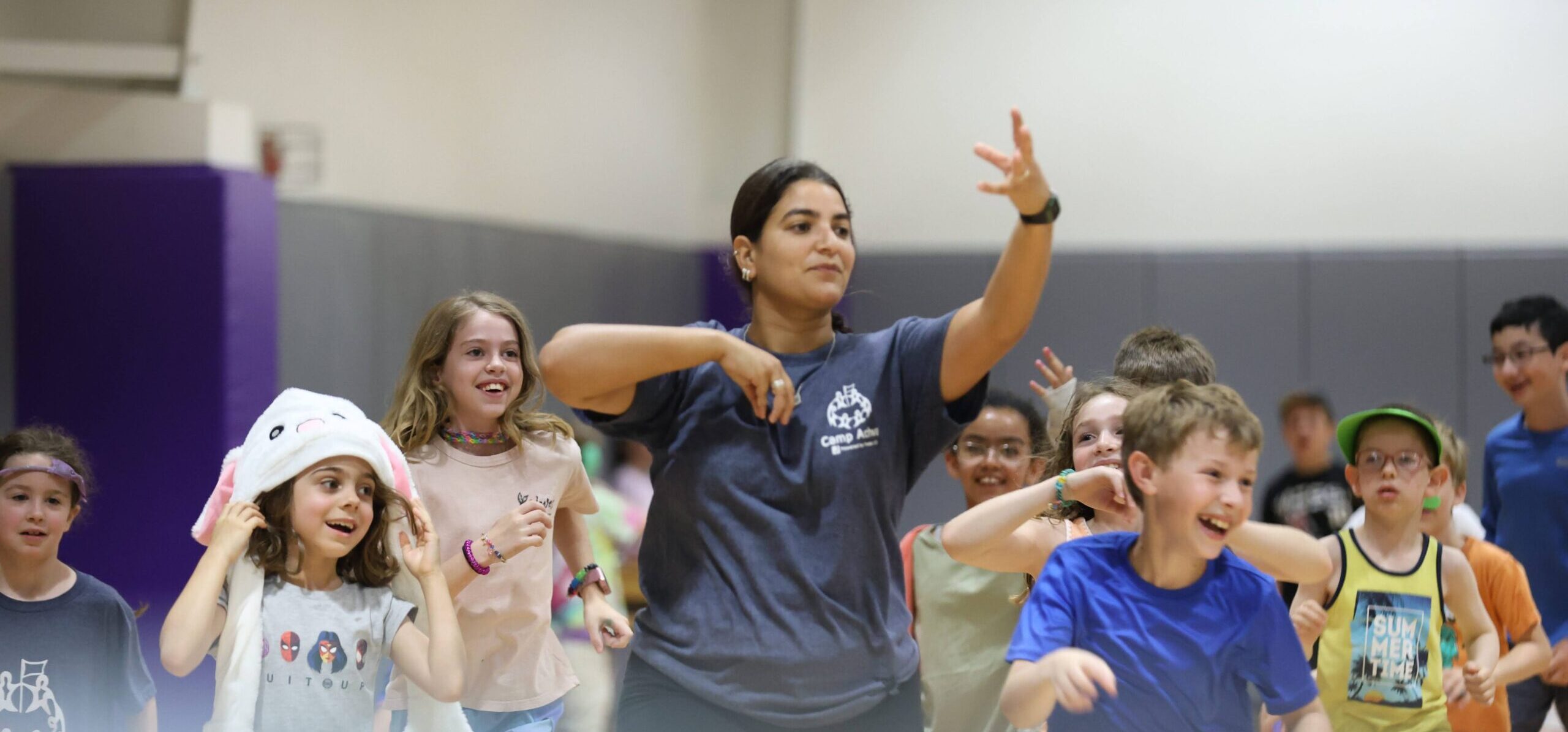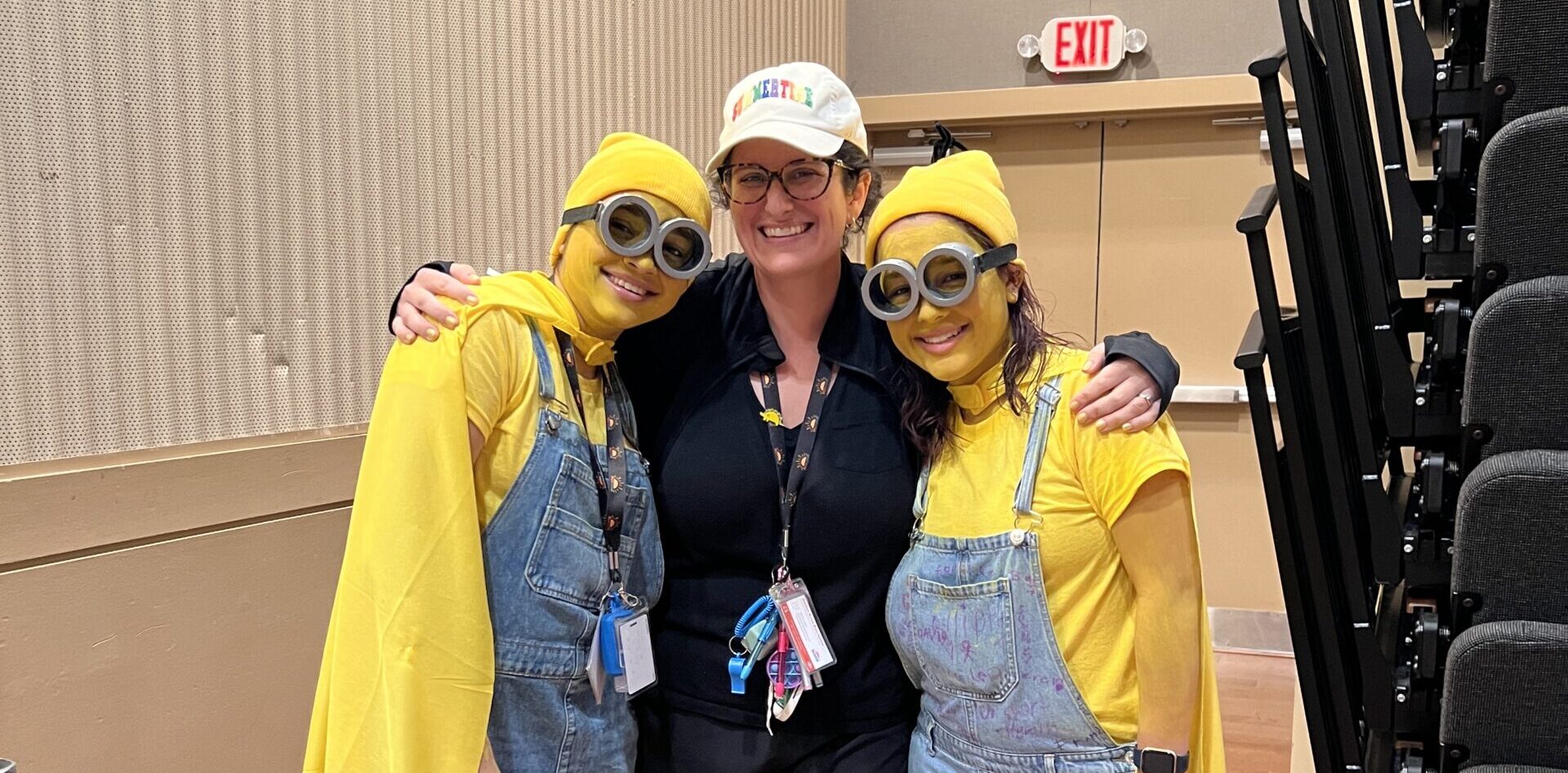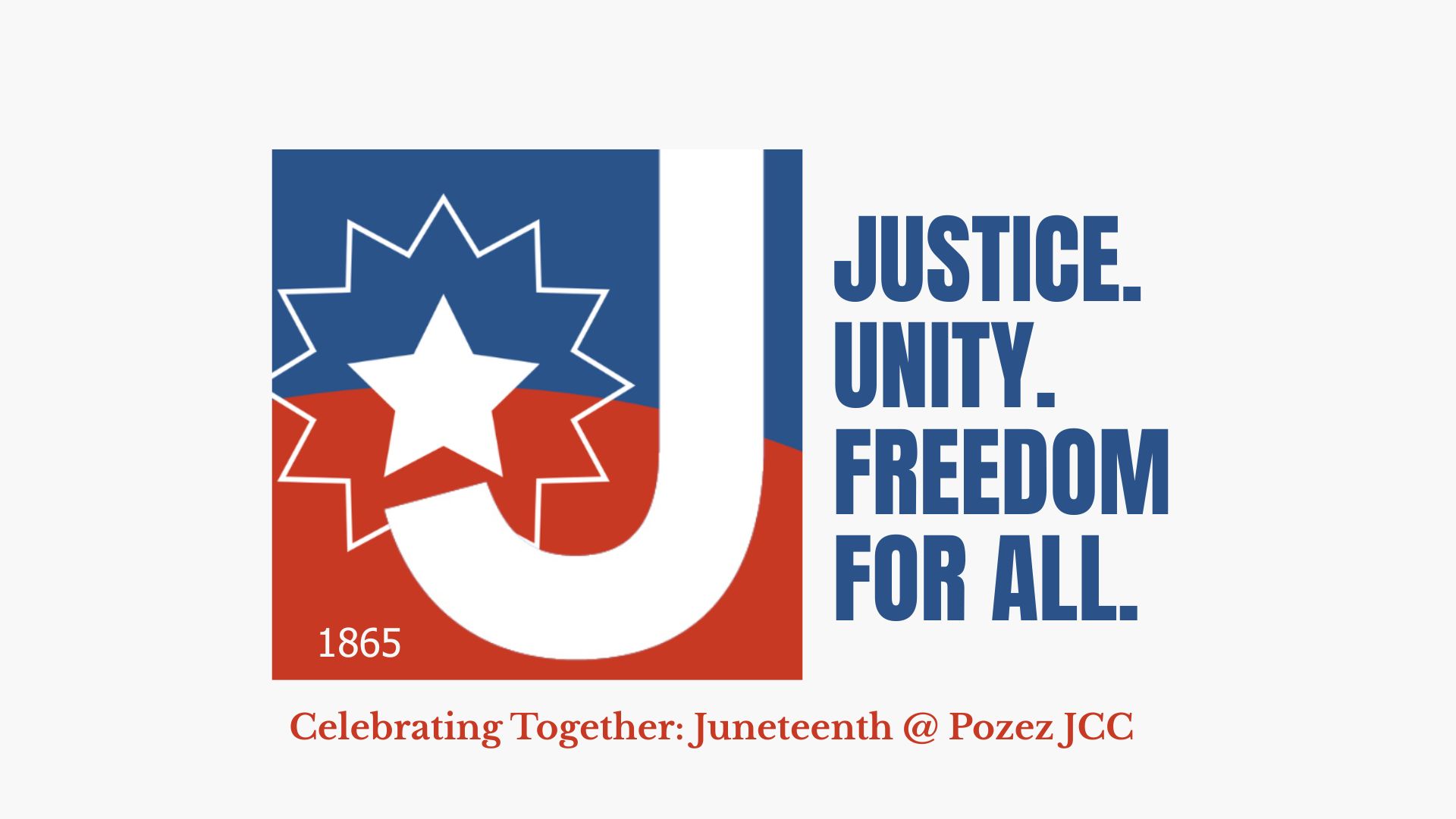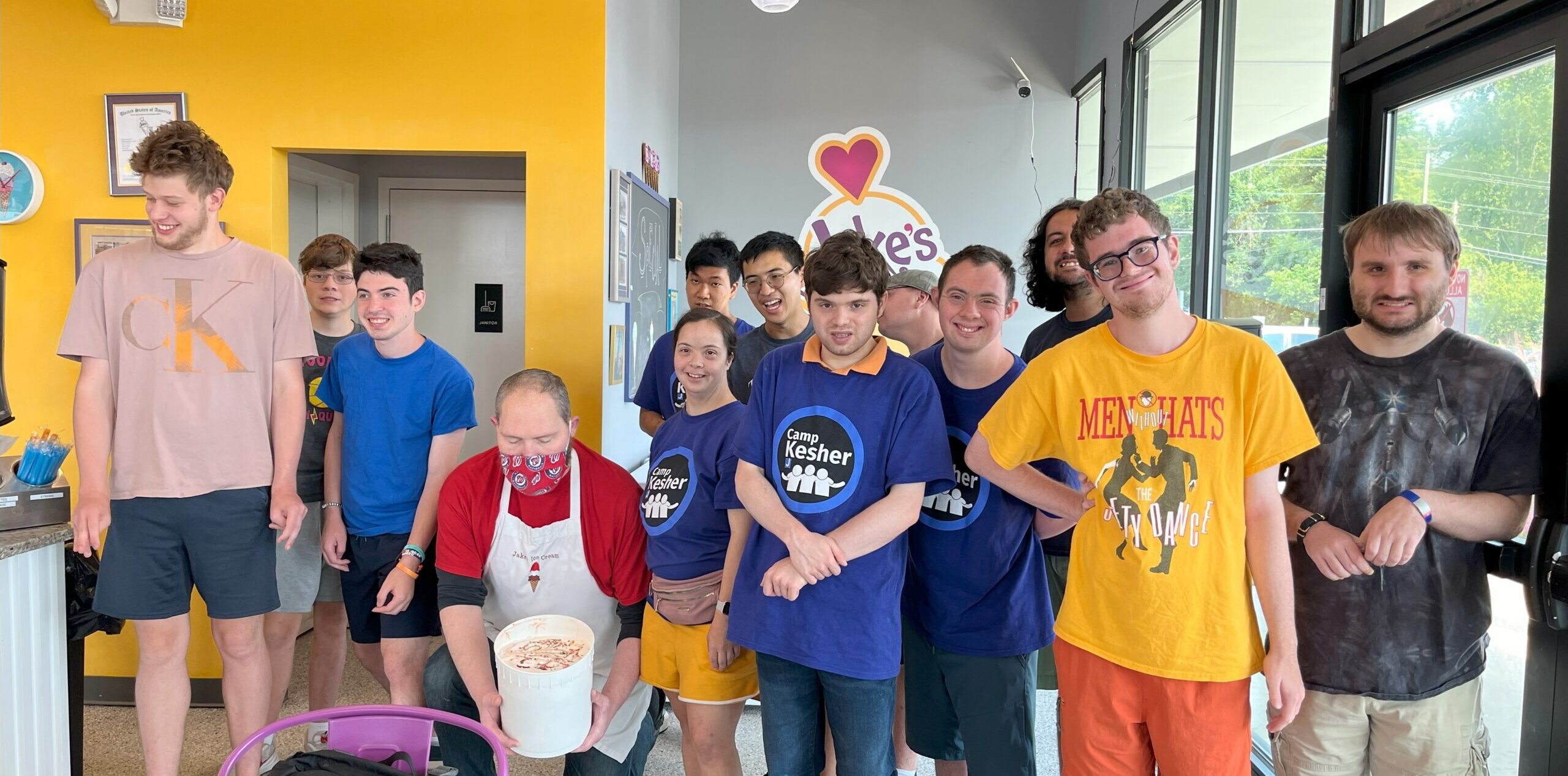The first week of camp is one of my favorite times of year.
It’s where all the planning, dreaming, and problem-solving that’s happened behind the scenes for months finally takes shape—in the most beautiful, chaotic, joy-filled way.
It starts with sound.
I hear the crackle of walkie-talkies as staff relay updates and ask for help. I hear kids laughing nonstop, Israeli dance music blasting, water coolers being filled, and inflatable slides coming to life.
But the true signal that Camp Achva has officially begun is when Maayan, our beloved dance specialist, stands before the camp and shouts:
“Camp Achva, ARE YOU READY?!”
That’s the sound of summer starting.
And the sights? They’re endless and full of heart.
There are water bottles lifted high—our signature move to keep campers hydrated and accounted for. Campers and counselors move through hallways in every shape but a straight line (because this is camp, after all). Red and blue streamers float from the ceilings. Balls fly, kids cheer, and smiles show up by the hundreds.
There’s nothing quite like watching the energy of our community in motion—200 people moving in coordinated chaos toward friendship, discovery, and fun. It’s incredible.
But the real magic? It’s watching ideas turn into reality.
This week, I watched Ruach, our weekly group showcase, come alive in a new way. Sydney and Riley—unit leaders who grew up at Camp Achva—stepped into the role of MCs for the first time. The comedy, the crowd’s energy, the sheer enthusiasm—it was a full-circle moment I’ll never forget.
I also watched our new specialists take on beloved activities with their own unique spin, reminding me just how lucky we are. Year after year, we keep growing—because the people who choose to work here bring passion and creativity to everything they touch.
And I see our mission in action, everywhere I turn.
– A camper using a saw for the first time in woodworking: Connection to new ideas.
– A group cheering each other on in bonding games: Connection to people.
– Dancing together at Shabbat: Connection to Judaism.
– Maayan teaching Hebrew words during Israeli dance: Connection to Israel.
I saw one of our CITs, just 12 years old, laugh alongside a five-year-old camper while helping them craft a friendship bracelet. That moment held something so big: the next generation of Camp Achva forming right in front of me.
And me?
I know camp has truly begun when the last car pulls away from morning carpool. I pause, take a breath, and look around. The carpool music is still playing to an empty driveway. Our staff walks into the building, already working as one.
And I smile—because I know what’s ahead.
Because I know we’re building something real.
Because there is no better feeling in the world.










